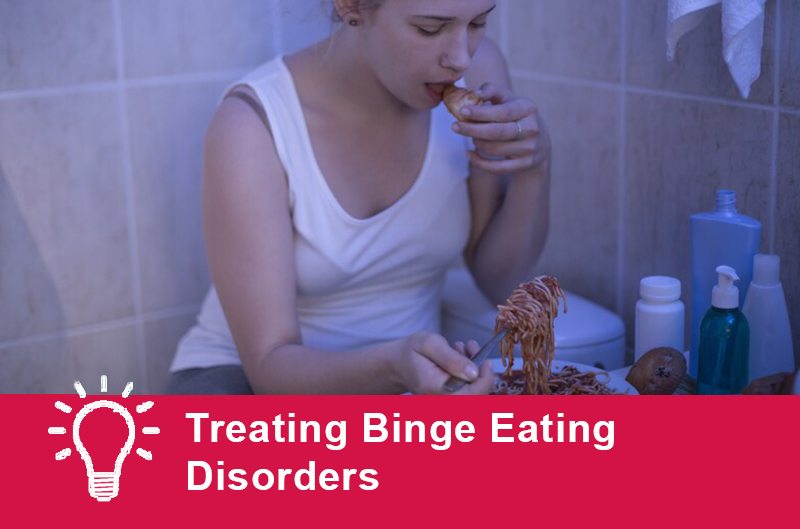Treating Binge Eating Disorders
The Carlat Psychiatry Blog, Volume , Number ,
https://www.thecarlatreport.com///
In The Carlat Child Psychiatry Report, Sara Weekly, MD, child and adolescent psychiatrist and clinical assistant professor at New York University School of Medicine, gave the following advice on BED treatment strategies: Consider cognitive behavioral therapy: CBT currently has the strongest evidence base among psychotherapeutic options for treating BED, although Interpersonal therapy (IPT) and dialectical behavioral therapy (DBT) also show promise in studies (Iacovino J, et al, Curr Psychiatry Rep 2012; 14(4): 432-446). Nutritional strategies can be effective: Nutritionists can help children and their parents learn how to develop balanced meal plans. Avoid punitive or restrictive meal plans. Specifically, behavioral weight loss programs that focus primarily on calorie and exercise goals are generally not recommended for kids and teens with BED. About complementary health approaches: Mindfulness, yoga, and meditation have been shown to be effective for patients with eating disorders, and there are preliminary studies that show promise in BED (McIver, S et al, Complement Ther Med 2009; 17(4): 196–202). These methods attempt to reconnect patients’ thoughts to their physical bodies, encouraging more attunement to natural sensations and cues and decrease baseline levels of anxiety and distress. Using psychopharmacology: Although no medication is FDA-approved for use for BED in a pediatric population, several classes of medications have shown promising results (McElroy, S et al, Ther Clin Risk Manag 2012;8:219-241), including the following: Read the full free article for free in The Carlat Child Psychiatry Report, which includes assessing patients for BED.



Leave A Comment
You must be logged in to post a comment.